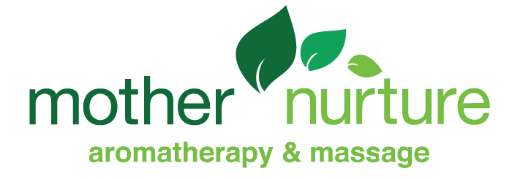
Gone are the days when there were limited options available to women around their birthing experiences. Over the past decade, the choices around birthing experiences have expanded widely. Today, more women are choosing from a variety of birthing environments and methods, based on their preferences, personal values, and needs. This shift has led to personalisation of birth plans and provision of complementary therapies like aromatherapy to help birthing women create a supportive, comfortable, and empowering environment for themselves during childbirth. In this blog, I will be talking about what Aromatherapy is and exploring the numerous benefits of incorporating it into your practice as a midwife, doula and practitioner. Whether you are looking to enhance patient care, provide emotional support, or simply introduce a more natural approach to health and wellness, aromatherapy offers a flexible and effective tool to complement your existing practices.
What is Aromatherapy?
In simple words, aromatherapy is a holistic healing practice that involves using natural plant extracts, known as essential oils, to promote physical, emotional, and psychological well-being. These concentrated oils are carefully derived from various parts of plants, including flowers, leaves, barks, and roots, and each type of oil possesses unique therapeutic properties. For example, Lavender Essential Oil is one of the most widely used and studied essential oils, known for its calming and relaxing properties. Using Lavender Essential Oil can significantly help reduce anxiety, ease labour pains, and alleviate headaches. It may even accelerate labour by helping to relax the mother.
This complementary therapy aims to improve the overall health by enhancing body’s natural healing processes, reducing stress, boosting mood, and alleviating pain. Rooted in ancient traditions, the application of aromatherapy has continued to be a popular addition to nursing and midwifery care in modern healthcare settings, providing a natural approach that supports and enhances the overall health and well-being of patients.
Benefits of using Aromatherapy into your practice
Incorporating aromatherapy into your practice can help you provide a more comprehensive and compassionate level of care to your patients that not only addresses the physical needs but also the emotional and psychological needs of your patients. From pain management and emotional support to promoting relaxation and facilitating labour progress, aromatherapy can help you enhance the health and wellbeing of your patients and improve patient care.
Pain Management
Aromatherapy offers a valuable tool for midwives, doulas, and practitioners in managing pain and improving overall patient care. Essential oils such as lavender, clary sage, and frankincense are known for their analgesic and anti-inflammatory properties, making them effective in alleviating various types of pain experienced during labour and postpartum recovery.
By incorporating these oils into massage or inhalation therapies, practitioners and midwives can provide a natural, non-invasive method for reducing discomfort and enhancing relaxation. This approach not only helps in pain relief but also promotes a calming environment, which can be crucial for the emotional well-being of the mother.
Additionally, the use of aromatherapy can reduce the reliance on pharmacological interventions, thereby minimising potential side effects and complications. By integrating aromatherapy into your practice, you can offer a more holistic, compassionate, and effective care experience to your clients, ultimately improving patient satisfaction and outcomes.
Emotional Support
Aromatherapy can significantly help reduce anxiety and stress levels, combat mood swings, and improve overall emotional well-being. If incorporated into healthcare settings, it can be a powerful tool for midwives, doulas, and practitioners in providing emotional support to patients.
Essential oils such as lavender, chamomile, and jasmine are renowned for their calming and mood-enhancing properties, making them ideal for alleviating anxiety, stress, and emotional upheaval during labour and postpartum recovery.
You can create a soothing environment for your patients that promotes relaxation and emotional stability. This not only helps to ease mental and emotional burden but also fosters a sense of comfort and reassurance.
Additionally, the positive emotional impact of this therapeutic approach can lead to better overall patient experiences and outcomes as aromatherapy allows practitioners to address both the physical and emotional needs of their patients.
Empowers Women and Their Support System
Aromatherapy can play a crucial role in empowering women and their support systems during childbirth and postpartum recovery. By integrating essential oils into their care, as a midwife, doula, and/or practitioner, you can offer a sense of control and involvement to expectant mothers and their families. For instance, essential oils like clary sage and lemon can be used to enhance the birthing experience, allowing women to actively participate in their pain management and comfort strategies. This empowerment extends to the support persons, who can be taught how to use aromatherapy techniques to assist and comfort the birthing mother, fostering a collaborative and supportive birthing environment.
The familiar and comforting scents can also create a home-like atmosphere, making the birthing experience more personal and less clinical. This natural approach not only enhances the emotional and physical well-being of the mother but also strengthens the bond and confidence of the entire support system, leading to a more positive and empowering childbirth experience.
Non-Invasive and Complementary Approach
When used correctly, aromatherapy is a natural and safe method to complement traditional medical practices. This therapeutic approach can be easily integrated into existing practices without the need for extensive equipment or changes in protocols.
As a qualified clinical aromatherapist, I highly recommend sticking to a small number of essential oils that you know well and that are generally well-received by most people. This approach minimises safety considerations and reduces confusion for both, you and your clients.
Also, it is crucial to be mindful of your patient’s sense of smell, preferences, and any previous experiences they may have had with aromatherapy, as these factors can significantly impact their response to treatment.
Essential oils, while beneficial, can interact with medications, potentially reducing or potentiating their effects. To ensure safe and effective practice, it’s always best to undertake formal training from a professionally qualified aromatherapist. This education and learning will equip you with the necessary knowledge to use essential oils safely and confidently. Read more about safety and directions for use here.
In cases where you are unsure about the use of certain oils or need more specialised advice, referring to a certified aromatherapist is always the best course of action. This approach not only enhances patient safety but also ensures that they receive the full therapeutic benefits of aromatherapy.
In conclusion, integrating aromatherapy into your practice as a midwife, doula, or practitioner can significantly enhance the care you provide to your clients as you are able to address both, their physical and emotional needs.
From pain management to emotional support and empowerment, aromatherapy can play a valuable role in not only creating a more nurturing and supportive environment for your patients, improving patient outcomes and overall well-being, but also your own wellbeing. It may help you deal with the challenges of shift work, poor sleep, and the stress of the job. My initial introduction to aromatherapy was while I was working a lot of night shifts in a maternity unit. I was surprised (and grateful) to discover how the essential oils helped improve my sleep and balance my mood.
If you are an expectant mother seeking natural methods to manage pain, anxiety, and improve the birthing experience OR a practitioner/professional looking to incorporate aromatherapy into your practice to offer enhanced care and support for your clients, download my FREE GUIDE – 5 ESSENTIAL OILS FOR LABOUR AND BIRTH to learn more about aromatherapy and how these natural remedies can support during labour and birth.
Explore a range of products and packs for midwives, doulas and practitioners working with pregnant and birthing women and new mums
At Mother Nurture, we understand the unique needs of midwives, doulas, and practitioners working with pregnant and birthing women, as well as new mums. Our range of products and packs is designed to provide a small selection of appropriate essential oils and blends, offering easy-to-use applications for your clients during the perinatal period. With ready-made blends and various aroma options, you can ensure a personalised and effective aromatherapy experience for your clients.
All packs include directions for use cards for Antenatal, Birth and Postpartum applications.
🍃Explore Our Professional Range Now
Also, if you are interested in creating a more soothing and supportive environment for both, yourself and those you care for, explore my range of online practitioner workshops, exclusively designed for midwives, doulas and practitioners who work with women during pregnancy, birth and postpartum.


